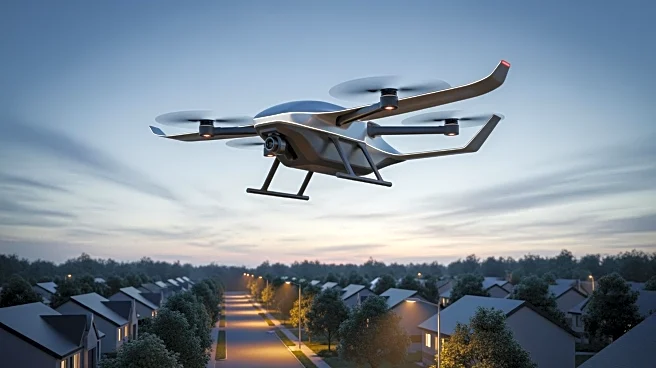What's Happening?
President Trump has assured that U.S. troops will not be deployed to Ukraine as part of efforts to secure the country following a peace deal with Russia. This statement was made during a hurried summit in Washington, D.C., where European leaders sought to influence President Trump away from aligning too closely with Kremlin interests. The promise of securing Ukraine without direct military involvement has been met with mixed reactions, with European leaders expressing cautious optimism. The discussions are part of broader efforts to establish a peace framework that addresses security concerns while avoiding direct military confrontation.
Why It's Important?
President Trump's commitment not to deploy U.S. troops in Ukraine is crucial in shaping the future of U.S. military involvement in Eastern Europe. This decision could impact U.S.-Russia relations and the strategic balance in the region. By opting for diplomatic solutions over military intervention, the U.S. may influence the dynamics of international conflict resolution and peacekeeping efforts. The promise also reflects broader policy shifts in U.S. foreign strategy, potentially affecting defense spending and military readiness. European allies may need to reassess their security strategies and reliance on U.S. military support, leading to changes in NATO's operational framework.
What's Next?
The next steps involve continued diplomatic negotiations to finalize a peace deal with Russia that ensures Ukraine's security without U.S. military deployment. European leaders and NATO allies will likely play a significant role in shaping the security framework and addressing territorial concerns. The U.S. government may face internal debates regarding the implications of non-deployment and its impact on national security interests. Monitoring the situation closely, stakeholders will assess the effectiveness of diplomatic efforts and the potential need for alternative security measures.











